In this #coachbetter episode, Kim explores the professional development journey with a panel of participants in the current The Coach microcredential. Each participant also shares a specific coaching story that they’ve been able to implement as part of their work in The Coach. Everyone joining Kim is part of our current cohort of The Coach. We have Cary in Moscow, Ryan in Saudi, Amy in Hong Kong, Abby in Kuwait and Shep in China.
If you want an inside look at what we’re learning in The Coach, and how that learning looks, in practice and why our participants are learning so much, this conversation is a “must listen”!
Subscribe to #coachbetter via your favorite Podcast Player!
Featured Guests
Bonus! Watch the Spotlight Version on YouTube!
Show Notes
Kim: In this episode, we have a panel of special guests! Everyone I’m chatting with is part of our current cohort of The Coach. We have Cary in Moscow, Ryan in Saudi, Amy in Hong Kong, Abby in Kuwait and Shep in China. I’m so excited to share this conversation with you so you can get a window into what the experience in The Coach is like – from a participant perspective. In this spotlight episode we’re focusing in on the power of reflection and making time for deep learning, and how the Coach has supported that for this particular group of participants.
Introductions
Ryan: I’m in Saudi Arabia. This is my second year here. my 10th year international, and my fourth year as a tech consultant, coach, and, hopefully, with the new school that I’m at that, I can help change their thinking, and move forward and moving into the coaching realm here.
Cary: I am at the Anglo-American school of Moscow where I have been for five years. This is the first year I’ve had the title of coach, but I have been coaching, as well as tech integrationist, not really sure what you want to call up, for eight years, at two different schools. and so this year I’m transitioning into innovation coach and design thinking and designing. And so it is a new position for the school. And so we’re learning all of that.
Abby: I am an instructional coach for literacy in Kuwait at the American international School, Kuwait. And this is my first year as an instructional coach. and it’s been a really great experience.
Shep: I am currently in Shenzhen, China working at Shekou International School. I’m in my third year in the learning innovation coach position. And, this is my 6th year in China. I taught for three years in the classroom here and then another eight years in the classroom before that.
Amy: I am an ed tech coach in the upper primary at HKIS (Hong Kong International School) in Hong Kong. This is my second year at the school and, I’ve been internationally and a few other countries before that, but it’s been a really great year because we’re building our coaching team at HKIS so there’s been a lot of exciting things happening.
What are your goals for The Coach microcredential program and any kind of a-ha moments that you’ve had so far?
Ryan: Right. okay. So, when I was job hunting, and having, a handful of interviews, this was all on a soft look so it wasn’t at a job fair. There’s just over time and, and chatting via chats. And, this coaching kept coming up like coaching. I’m like what’s coaching? Cognitive coaching. What’s that? What’s that so they’re like, well, what do you, what do you do to coach. Like, well, can you explain what you’re asking not really knowing, what they were wanting to know. And I’m like, Oh, well I do this and this and this. They’re like, well, you do coach. So knowing that, but then because I didn’t have any formal training, I’m like, huh, I need to get some formal training. So I found through my connections, that there’s this great company that’s training teachers of how to be coaches. And, so that was one thing I want to get out of this is to become a better coach, knowing that I have some sort of background, and just to become better.
Ryan: The aha was, I’m already doing part of it already and not realizing that before and going, “Oh, it’s this big thing, that it’s this huge event that I don’t know if I can go through this and do this well”, and then knowing, “Oh, I, I’m already doing part of this already in my conversations with teachers, with admin and many things like that.”
Kim: I’m really interested to hear that in your job search, this was two years ago, you heard the word “coaching” a lot. That’s interesting. Do the rest of you have a similar experience? I know that not all of you have moved around like Amy, you’re probably the only one. And maybe Cary, was that also a similar experience, like that word? Well, you were looking for those positions so…
Cary: When I job hunted for the current position, the coach was not a word that was currently that was being used at the time, but it is a word that integrationists were turning into coaches, but a lot of times it’s just the name change. It’s literally just integrationist and they replace it with tech coach ’cause it sounds like the current thing, which is exactly what they did with most tech integrationist when they turned them from tech teacher. So for me it was sort of a way, joining the program was a way for me to, specifically this program as opposed to a cognitive coaching program, was a way for me to be in a coaching program where I knew I could be mentored specifically from a tech standpoint. And I knew that I would be able to have access to people who could help make sure that they knew the answers to those tricky questions that tech coaches get thrown at. And those tricky situations where we’re constantly fighting that battle of being a consultant and a tech support versus being a coach. So I knew that, the mentors, Kim, but also all the other mentors, it didn’t matter what level I knew that I would be able to get in touch with people who would have that experience and be able consult with me as well as coach me through those things. And, and so that was a really, definite, moment, reason for picking the program. And then my aha moment is very similar to Ryan since the sense that just as more confirmation that what I was already doing and the ideal idea in my head of what I should be doing is in line with all this. There’s not been a major like, “Oh, I’m not doing that right at all.” There’s “Oh, if I could get teachers to participate the way I envisioned them to participate, it would be exactly what it’s supposed to be.”
Kim: There’s two things that you said in there that I think are really interesting. And I think Amy was ready to talk next. So I’m going to try to give you a segue, Amy. And one is that feeling of like joining the program and not being sure what I’m doing is coaching and then being reassured that yes, in fact, what I’m doing is coaching and like building that feeling of confidence. I’ve been having so many conversations lately with coaches about this imposter syndrome, this feeling of “Am I doing this right? Am I good enough? Is this what I really should be doing? Is this something I have skills in?” And like, just building up that confidence that maybe you don’t have this specific vocabulary, you haven’t practiced this specific skill, but we’re going to put it all together and package it so that you’re walking out of this feeling really confident.
So that makes me feel really good to hear both those things. And then Cary, when you were talking about having support from specific tech people with tech in their background connects me so much to my last conversation with Amy, where she was talking a lot about seeing the other subject area coaches and how teachers interact with like the math coach or the literacy coach at her school and how it is unique. And I think there is a more solid understanding of the pedagogical focus of other subject area coaches than there is about what like a technology or an innovation coach can do. And I think that’s really interesting and because Abby is a literacy coach, I want to make sure that she gets a chance to talk about this too, because she maybe has a different perspective, but I’m not sure Amy, did you have something I was trying to give you a segue.
Amy: I guess I was thinking of the two questions you have asked. My first aha moment is kind of what you were just saying. And it’s very, very basic and simple, right. But the aha moment that I’m a coach. I think that a lot of people in the tech role, either as you’ve been saying aren’t considered coaches or don’t operate in the same way as coaches, but when I arrived at my school, for example, there was already an instructional coach and a literacy coach in my division, but I was never like quite introduced at the same time or like referred to in the same way or grouped together in the same way, just because of history and the way that I walked into the role. And I’m seen much more as a specialist to get the Makerspace up and running and teach classes.
And so I think my aha moment in this program as simple as it sounds was just truly like recognizing and acknowledging that like I am a coach, so that’s really simple. And probably most people don’t need to get in a year long program to realize that, but it’s, it’s kinda nice affirmation. And I think for me, as a result, it led to this goal of how can I give that a ha moment to my whole division and my whole school? How can I build this coaching culture? How can I act and interact in a similar way that the instructional coach and the literacy coach operate in the school so that people see us actually as a team and we build a culture of coaching? And so I think the goal is really we’re in an exciting point where when I started, I felt really isolated but in one year we’ve physically expanded our team to now seven coaches in my division, which is blow your mind unheard of kind of awesomeness. but we’ve also physically inherited a space. So one of the things that I tried to do last year was to move my office physically to be with the instructional coach and literacy coach. And as a result of all the extra people that we were able to shift into coaching roles this year, they built us an office that I was able to help kind of envision and design with our teams. In curation room attached to an office space for the seven of us to work. And now we definitely feel like we have a presence in the school as a team and so being in this program has been extremely helpful as we’re like trying to all get together on the same page, trying to come up with our philosophy, trying to establish ourselves as coaches…
Kim: As you’re talking that connects, I don’t know if all of you know this, but we also offer private cohorts for schools. So when there are schools with multiple coaches in a school and they want to build up a coaching culture, we’ll run a private custom timeline cohort of The Coach for them. And I’m doing that right now with a school in Beijing and that’s been really interesting to see how all coaches at the same school are building that understanding of what coaching is, how coaching works in this context, what we can apply within this setting and how that makes sense for this particular school. And I think Amy, your school is going through that, like on their own, not on their own because obviously you have a great team, but I think that kind of recognition that one per it’s hard for one person to change the culture of a school. It’s great when you have a team to work together and I’m going to segue to Abby because I know Abby also has a team and I’ve been threatening to segue to her for a while now.
Abby: So I work on a team of five instructional coaches, two of them are specifically for technology and three of us are for literacy. But the nice part is that we are all instructional coaches first. So while we are, we have those specific focuses, based on experience and things like that, we work with all teachers around all different things. So this year, especially this year as an instructional coach for literacy, I did a lot around technology, just getting people upskilled for the context that we’re in. Tt has been nice to shift away from being that that help desk and technology focus, but I I’ve really enjoyed getting back into that, that literacy focus. To answer the questions that I guess I didn’t really answer the questions. So when I was first looking at becoming a coach since this is my first year, I really wanted to just learn about the skills that are important for coaches and then work on improving my skills. And I had already done some private mentoring with Kim and I’ve also done COETAIL before. So, you know, I’m kind of a diehard fan of this, of this company. So that was kind of what prompted me to look into The Coach. And, I would say my biggest a-ha so far is the importance of reflecting and just like, I think that’s what I get most out of my conversations with Kim is having someone that I can verbally say those reflections and bounce ideas off of, but really as a whole, it’s just like thinking about my own practice and thinking about what worked and what didn’t work. And then Kim just asks me really great questions to make me think even deeper, so that’s really been the best part for me.
Kim: Thank you. I’ve been having a lot of thoughts about that this week. I don’t know any you follow on Instagram, but that’s what I’ve been talking about all week on Instagram, this power of this reflection and the time, the time that we need to take to reflect. And I think as coaches, we often expect our teachers to do that. Like we want them to do that with us, but then as coaches, we don’t obviously you all do because you’ve invested your time in this program, but there are many coaches that wouldn’t, wouldn’t even think necessarily to have a coach or to have a coaching conversation about their coaching practice, because they’re so busy doing it all the time. But like this week I had three different people say exactly what Abby said, and I don’t think do, or one of them have, even though I think we did meet on Monday, but like that power of reflection that time, that’s just about you processing what’s going on and having the right person ask the right questions to push you just that little bit further. And I, I believe it because I have a coach for myself too. I just think it’s so valuable check. I threatened you now. So now it’s your turn.
Shep: It’s a perfect segue Kim because, the, the reason that, I got into this was because I was reflecting so much, especially when we went online last year and everything got turned upside down and it really made me question if I even wanted to be a coach anymore. And, that, so I became a coach and I went through my first year as a coach and we all know how the first year goes, right. It was horrible. And I didn’t know if I was doing anything right. And I felt like everything was wrong. And I said, okay, next year is going to be so much better. And then next year happened and it was 2020. And we all, we were, I was, I was outside of the country for nine months and online for nine months. And during that time, yeah, I was just having a lot of doubt in the job, because the position had changed so much being online.
And, so yeah, during that time, none of my colleagues were interested in being coaching. It was just in survival mode at that point. So I said, you know, before I make a decision, if I want to move back into the classroom, let me at least give coaching a hundred percent. Let me find some PL that, you know, that will make me a better coach so that I can see if it’s, is it me Is it the position or is it something else And, I, I had worked with Diana before, we worked together at the same school, years ago. So I already trusted her, reached out to her and asked her if the program would be a good fit. And, she said, yes, obviously, so this is all her fault that I’m here, but yeah, she’s, she’s been, wonderful to work with.
And, and, yeah, so now that I’m, I’m back, I’ve been back physically at my school for three weeks. I’ve actually been able to start putting into practice a lot of the things that, we’ve been learning about and it’s been great. It’s just been such like a game changer and it’s really made me reevaluate again, what I think about coaching. And I guess my big a-ha moment has been in telling some of my colleagues about what I’m doing in this program and trying to explain to teachers what this program is like. And I realized that, yeah, it’s, it’s a coaching course, but it’s really just about communication and pedagogy. When you, when you break it all down, it’s about speaking and listening and about what’s best for the students. And at the end of the day, it’s, everybody can benefit from those things.
Kim: Oh, I’m so glad you said that. I really appreciate that because it is, it’s very challenging to try to explain how this is for coaches, but it can be for teachers, it can be for librarians, it can be for team leaders, anyone who has to work with other human beings in an educational context. I mean, I don’t, I’m not trying to go beyond education, but that idea of listening and asking good questions and building trust and building relationships, those are foundational aspects of a coaching job, but they’re also foundational aspects of any level of leadership. And any time you have to work in a collaborative team, and it’s been interesting because we’ve had quite a few classroom teachers actually come through the coach and the takeaways that they have for the way that they work, either on their team with the other adults or in their classroom with the kids is amazing because all of this can apply in all those various settings. So I really appreciate you bringing that. Thank you, Shep.
If you are ready to level up your coaching this academic year, The Coach is for you!
Learn more here!
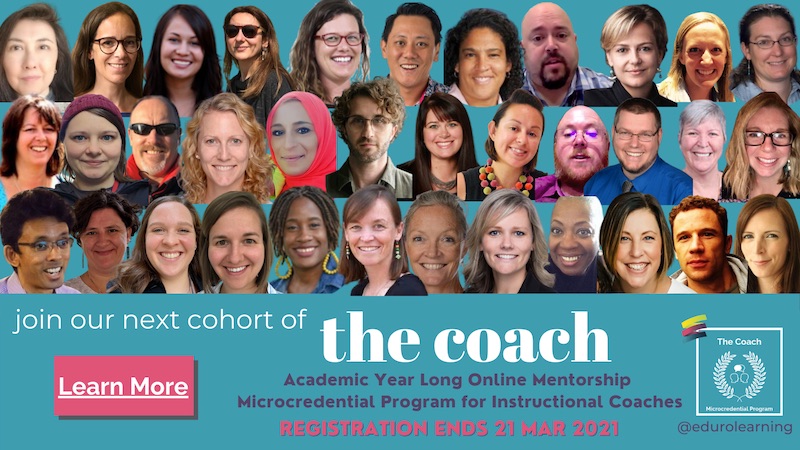





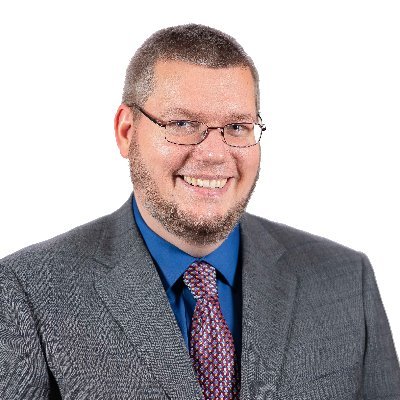
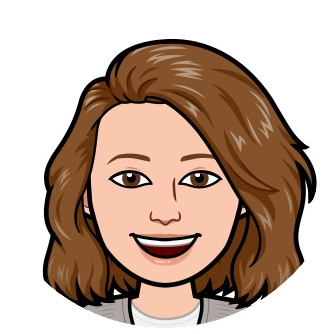

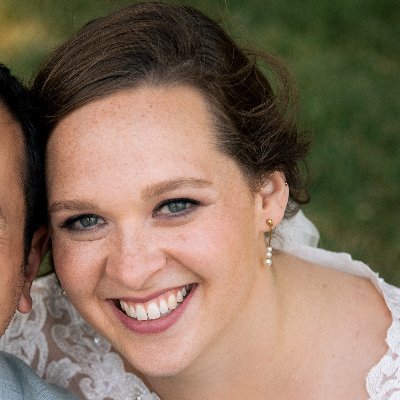
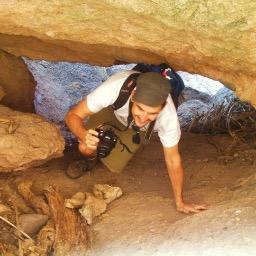
Recent Comments